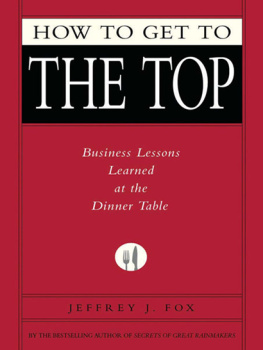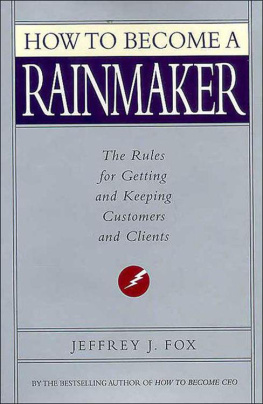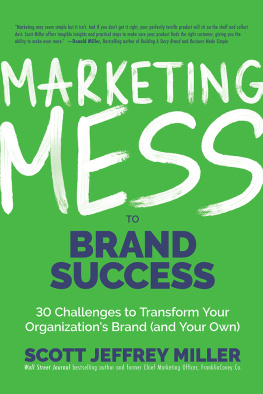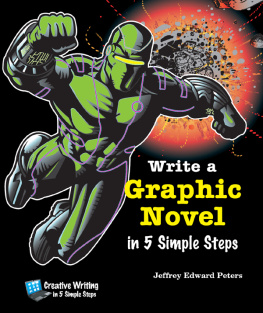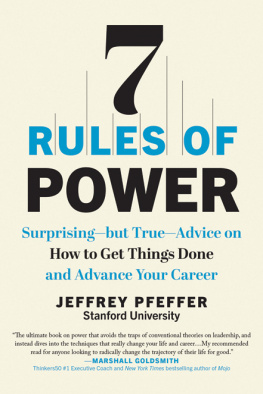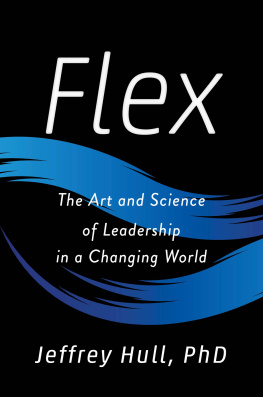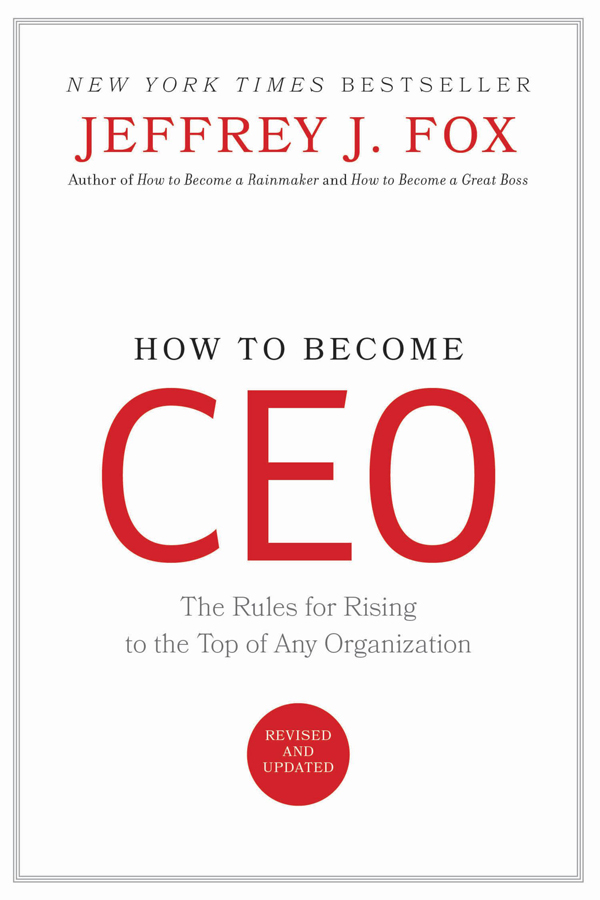To Legh F. Knowles, Jr. (19191997)
Why You Should Read This Book
If you bought this book, you are ambitious. If someone gave you the book, that person thinks you are ambitious. Having ambition to better yourself, to be a contributor, to make a difference, to grow professionally, to be more successful, or to become CEO of an organization is good. CEO is the acronym for chief executive officer. The CEO is the person who has strategic responsibility for the fortune and the future of the organization. The CEO may be called headmistress, managing partner, general of the armies, pontiff, commander-in-chief, queen, or warden. But whatever the title, the CEO is the boss. If becoming the boss is what you want, this book will help.
There are oodles of factors that influence the path to CEOwork habits, luck, timing, competitors, personality, supporters, talent, circumstances, and so on. This book will help you better your work habits, influence the odds, impact timing, surpass competitors, and deftly use your talent.
This is a book of advice and recommendations. The ideas are based on the realities of business and organizations. The ideas in this book are not a part of any MBA curriculum. They are crisp, blunt, frank, generally nonjudgmental, and easy to read, digest, and do.
Many of the recommendations are stated in rule or commandment form. This is because what is written is the way it is not the way it ought to be. Although the content of the book is intended to help you progress in a company, the observations and advice are often applicable to your nonwork life and activities, as well.
The surest way to become president or CEO of a corporation is to buy a business or to start a business. If you plan to make your career in a large corporation, this book will help. Of course, if you would rather run your own business, this book will also help.
Since this book was first published, the world has done what the world has done every minute since its creation: It has changed. Perhaps the biggest problem in business is that while environments and markets change, managements do not. Change is inevitable. Markets, competitors, regulations, technologies, and customers are constantly changing, arriving, going away. Change always represents opportunities for the ambitious person who is grounded, clear-eyed, and competitive. This book will ground you.
Good luck and thank you.

W ACADAD, pronounced wack-a-dad, is an acronym for Words are cheap and deeds are dear. Deeds trump words. If you say you are going to do something, always do it, or do your utmost. If you give your word, keep it.
Make WACADAD an unswerving part of your life. Practicing WACADAD will set you apart from the multitudes. The world is full of people who say they will do something, and dont do it. They promise to call, to meet a deadline, to do a favor, and they dont. People who create positive outcomes are rare.
Be modest. Dont brag or boast. Prove your worth with deliverables, and do so again and again. Work on projects with senior people. Ask people what the big problems are. Think about those challenges. Work at solutions. Test them. Write up your proposals, and get proper distribution.
Ted Leavitt of Harvard Business School wrote that creativity without implementation is irresponsibility. Ideas are nothing without execution.
So few people in a corporation actually execute ideas that the person who does becomes visible, and is often sought to do more.
Pick your spots to shine. Presenting to senior management, instructing a training class, and speaking before the sales force are highly visible forums. Seek them, and work very hard to prepare outstanding presentations.
Words are cheap, and deeds are dear. While the others are talking, you get it done. Be a deed doer.
Here is the simple gist of it: If you say you will do something, do it. If you say you wont do something, dont do it. If you see something that has to get done, make it happen.

A fter you have decided what you want to dowhether it is banking, advertising, manufacturing, or something elsego to work for the company that offers you the most money. If you have not decided what kind of career or industry is for you, then take the job that offers the most money. If you are in a corporation, always take the transfer, promotion, or assignment that pays the most money.
There are several important reasons why you go for the money. First, all of your benefits, perquisites, bonuses, and subsequent raises will be based on your salary. Corporations give all extra compensation in percentages. Therefore, a 10 percent raise on a $42,000 salary is $200 better than the same raise on a $40,000 salary.


